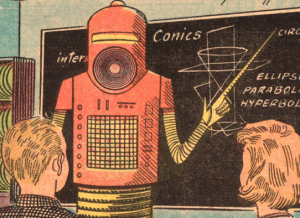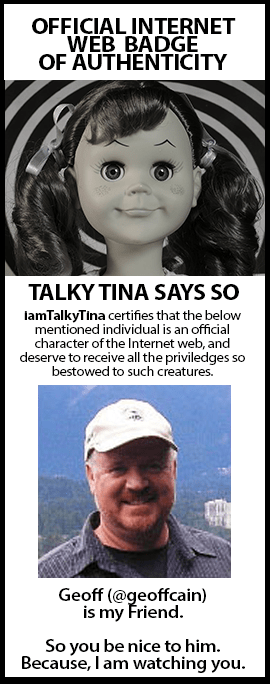There are a lot of things that technology can do in education. A lot of automation in education is very useful: handling student records and passwords, single sign-on, that sort of thing. Then there are things that should not be automated. Just because something can be automated doesn’t mean it should be. I don’t think we understand, yet, enough about learning to say that learning can be automated. And yet that claim comes up all the time. I was listening to NPR on the commute today and heard Eric Westervelt talking about “Knewton” – an “adaptive learning” program. There is a lot of hype around adaptive learning right now, and that is a problem itself. The sales brochures are interesting Rorschach tests that reveal how the technocratic business folk see education.
Michael Feldstein really hit the nail on the head today when he wrote:
But much of what Jose says, at least to the media, is the opposite. No responsible educator or parent should adopt a product—even if it is free—from a company whose CEO describes it as a “robot tutor in the sky that can semi-read your mind” and give you content “proven most effective for people like you every single time.” I’m sorry, but this sort of quasi-mystical garbage debases the very notion of education and harms Knewton’s brand in the process.
Autograding papers and tests reinforces the idea that the goal of education is a grade: teaching is giving a grade and learning is getting a grade. Learning becomes a transaction. As an instructional designer, I try to move faculty away from this equation. The confusion comes in when the faculty confuse assessment alone with teaching. When I talk about online classes, the first concern is “how do we secure the test?” instead of how do I teach online?” We could be doing so much more in out classrooms besides testing. And autograding papers removes a very important part of the process of writing out of writing: the fact that we do not write to produce papers but we engage in a process that evolves our thinking, that expresses our ideas.
I started my work day with a text from Dr. Crawford who, in a moment of nostalgia I am assuming, sent me a picture of the cover of “Building Learning Communities in Cyberspace” by Palloff and Pratt which was from the 90s but is completely relevant for today. EdX and the xMOOCs are in the business of transferring information and creating test-takers. It is easier to do that than to facilitate online community and authentic learning.





